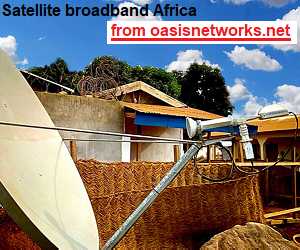Advertisment:


Satellite Internet Forum.
Welcome, Guest. Forum rules.To search this site click here > SATSIG search
| Home Login Register |
| Satellite Internet forum › Satellite Internet - Americas › Satellite Orbit Slot |
|
Pages: 1
|
Satellite Orbit Slot(Read 5815 times) |
|
imepals
Member
★★ Offline Posts: 30 |
Mar 27th, 2007 at 7:23pm
|
| Back to top |
« Last Edit: Mar 30th, 2007 at 5:18pm by Admin1 »
IP Logged
|
|
USN - Retired
YaBB Moderator
★★★★★ Offline Posts: 837 Kentucky (USA) |
Reply #1 - Mar 28th, 2007 at 12:13am
|
| Back to top |
USN (Ret)
IP Logged
|
|
imepals
Member
★★ Offline Posts: 30 |
Reply #2 - Mar 30th, 2007 at 8:27am
|
| Back to top |
IP Logged
|
|
Eric Johnston
Senior Member
★★★ Offline Posts: 2109 |
Reply #3 - Mar 30th, 2007 at 9:34am
|
| Back to top |
IP Logged
|
|
imepals
Member
★★ Offline Posts: 30 |
Reply #4 - Mar 30th, 2007 at 1:39pm
|
| Back to top |
« Last Edit: Mar 31st, 2007 at 9:20am by Admin1 »
IP Logged
|
|
Pages: 1
|
Email me: eric@satsig.net
Powered by YaBB 2.5.2!
YaBB Forum Software © 2000-. All Rights Reserved.
Disclaimer, Terms of Use and Privacy Forum User Agreement Forum rules Cookie policy.

